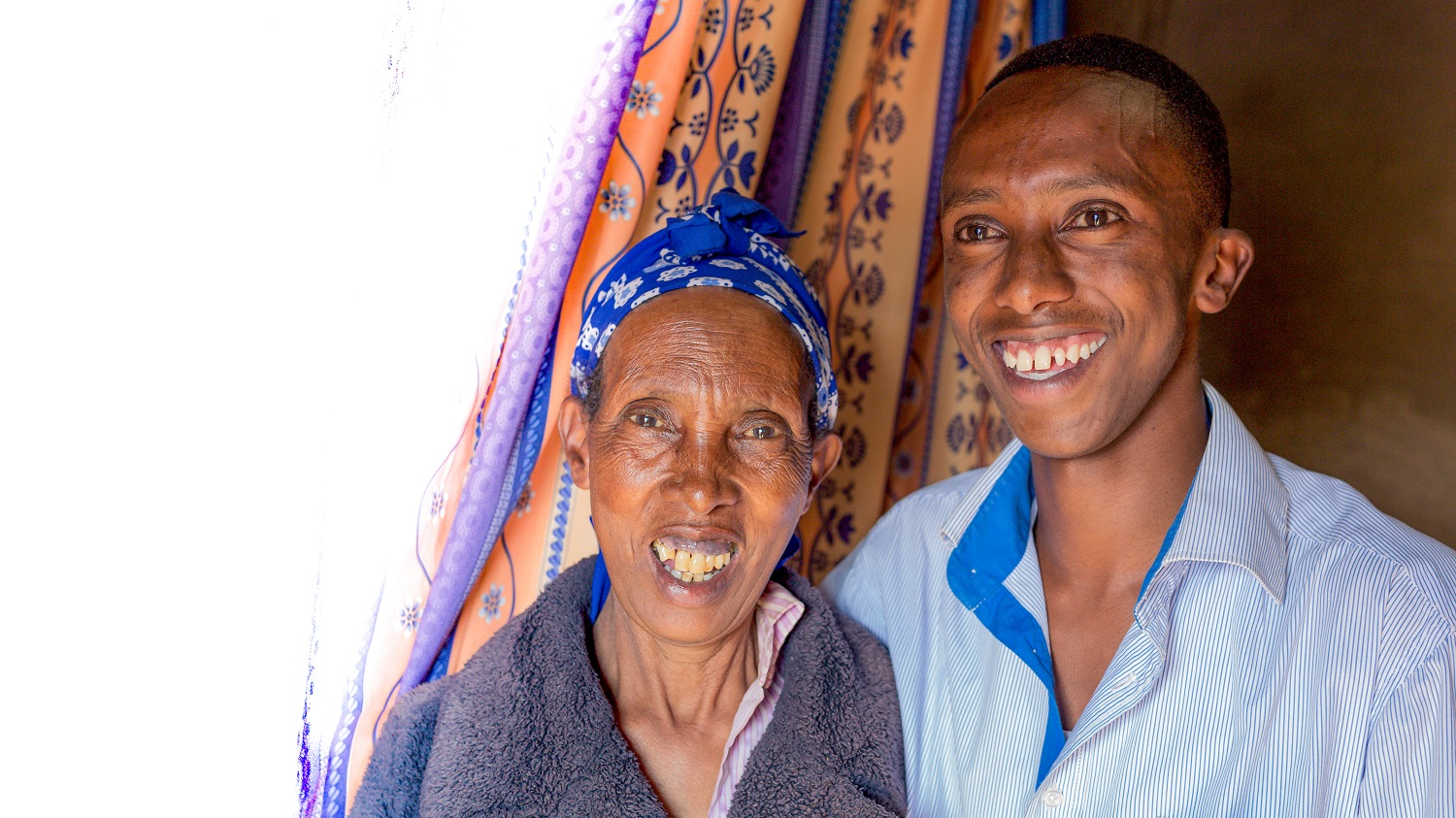
Justin, 25, photographed in 2017 at his Grandmother’s house in Gihembe refugee camp, Rwanda. He was undertaking a Nursing BA program at Kigali Health Institute. He is now at the frontline fighting COVID-19.
Justin, 25, photographed in 2017 with his Grandmother in Gihembe refugee camp, Rwanda. He was undertaking a Nursing BA program at Kigali Health Institute. He is now at the frontline fighting COVID-19.
Everyone can make a difference, Every action counts.
We mark this World Refugee Day in the midst of dramatic social change.
A pandemic has tested our strength and highlighted systematic inequalities. It has also connected us in new ways and renewed our motivation to act for equality.
In the time of COVID, we celebrate refugees who are on the frontlines fighting this pandemic, their hosts, and the aid workers supporting them. We have seen everyday heroes from all walks of life step up to join the front lines.

The Government of Rwanda [GoR] is a signatory to the 1951 Convention and 1967 Protocol, OAU Convention, 1961 and 1964 Statelessness Conventions and most of leading international human rights and displacement conventions. The status and treatment of refugees is governed by the Law N° 12/2014 of 09/05/2014. Most refugees in Rwanda are recognized prima facie and Rwanda has generally maintained open borders.
In 2016, the GoR made commitments to further integrate refugees through a joint economic inclusion strategy of refugees in the national systems; education, health insurance for urban refugees (and students in boarding schools), livelihood and documentation.
Given the deteriorating of the security situation in and around the Libyan capital of Tripoli, UNHCR has, in 2019, signed an MoU with the GoR and the African Union (AU) for the immediate establishment of an ETM. The latter is aiming at responding to the emergency protection needs of refugees and asylum-seekers in Libya. A durable solution for their situation would be pursued, including the voluntary return to the country of origin, or resettlement.
Today the COVID-19 pandemic poses an additional threat to refugees and displaced people, who are among the most vulnerable. But then again, UNHCR salutes the efforts demonstrated by the Government of Rwanda to include refugees in all COVID-19prevention and response efforts.
“Everyone’s action counts in the global fight against COVID-19”
During these challenging times, ordinary people have become heroes by stepping up and leaning in to help. Despite living in extremely vulnerable conditions, refugees are contributing in the frontlines of the pandemic.
Refugees are volunteering as health workers in Nyabiheke refugee camp, making soap in Kigali and Kigeme camp, sewing masks and protective gear in Mahama and Gihembe refugee camps, engaging in livelihood activities in Mugombwa refugee camp and in so many other locations in Rwanda. Refugees are contributing time to help the needy everywhere.
UNHCR Rwanda – Population Statistics
UNHCR Rwanda Total Population
Source: UNHCR Statistics
31 May 2020
Refugees in urban areas
Source: UNHCR Statistics
31 May 2020
Women and Children
Source: UNHCR Statistics
31 May 2020
Meet the everyday heroes: Refugees and Rwandans who are doing their bit together on the pandemic’s front lines.
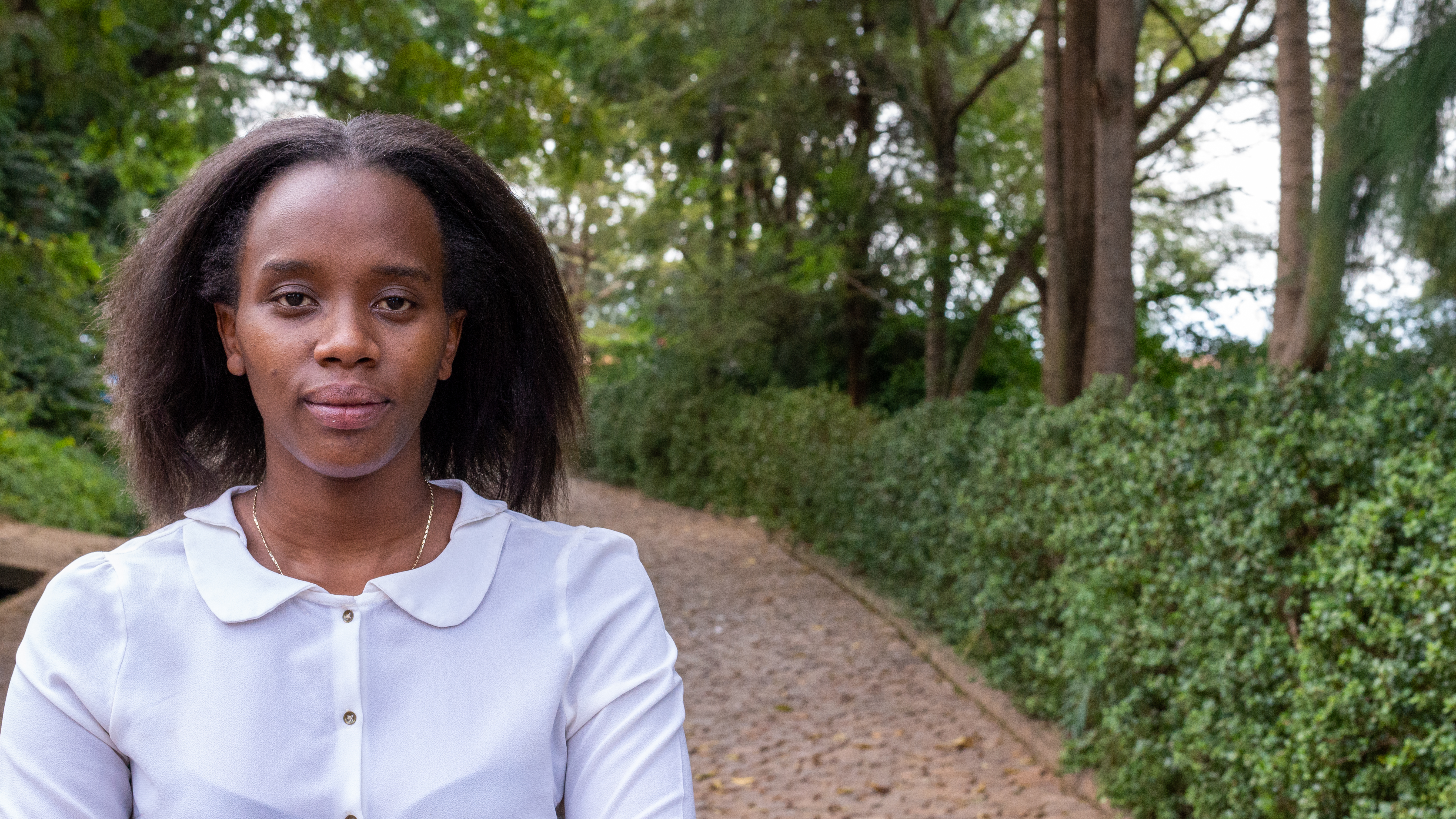
The Soap Maker
“COVID-19 affected everyone. I wanted to offer support. Because together we are stronger.”
—Vanessa, 22
Kwizera Kelly Vanessa was just seventeen when her family fled to Rwanda. She was forced to leave everything behind and drop her studies to join her parents in Kigali, Rwanda. “I never felt I couldn’t finish the research. I still loved learning, but when I was in Senior Three, conflicts forced me to drop out of school.”
When COVID-19’s first case was confirmed in Rwanda, Vanessa replied to the call from the government to combat COVID-19. She made multi-purpose soap which she distributed in her village to some of the most vulnerable families. “The lockdown had heavily affected some refugee and Rwandan families. I gave out nearly half of my soap production to people who couldn’t afford the basic hygienic items,” she said.
“As we battle COVID-19, I draw inspiration from the resilience refugees have shown in overcoming their own crisis of displacement and dispossession; their separation from home and family; and their determination to improve their own and others’ lives, despite these and other hardships.”
–Filippo Grandi, UN High Commissioner for Refugees
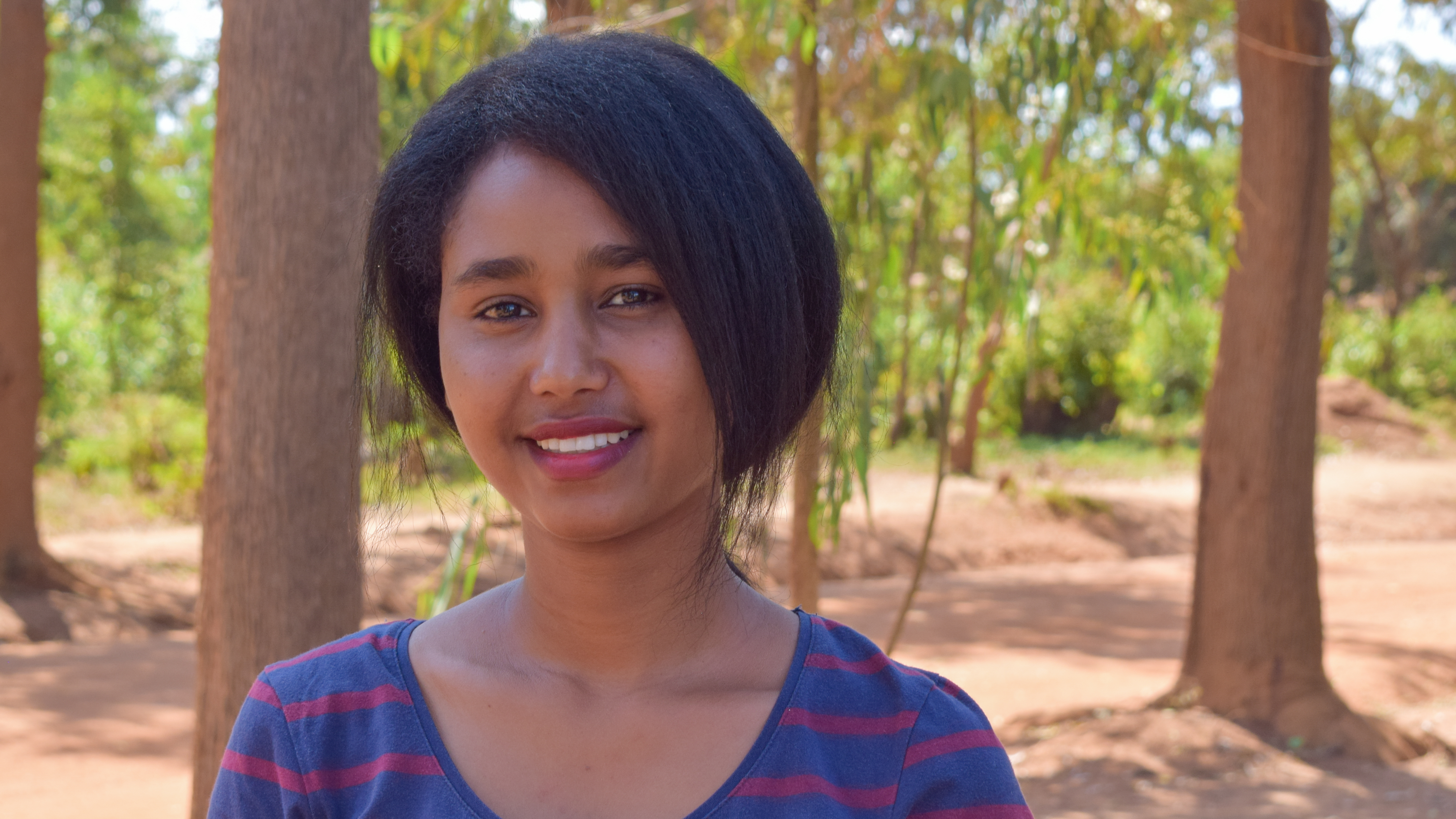
The Youth
“Rwandan people are very welcoming, they have kindness in their faces and that has been very comforting,”
—Bana, 21
It was not easy for Bana to sustain friendships in times of physical and social distancing, as some of the cultural norms of refugees at the ETM center revolve around gathering. Bana remains in constant contact with the rest of the refugee community via various social media channels, despite not leaving the house when necessary.
“At the most exceptional times, we have actually shown our sense of community. We’re watching and recommending different YouTube series, and we’re also discussing the interesting things we’re reading and watching, like a virtual book club,’ she said.
Bana helps in mobilizing prevention against COVID-19 through chat groups. Via WhatsApp, she attends virtual English classes and takes time at the ETM center to participate in the inter-house competition.
“Although refugees and asylum seekers may be highly vulnerable in the face of this pandemic, they do have equal responsibility for their well-being and that of their communities,” Bana said.
“Today and every day, we stand in unity and solidarity with refugees and recognize our fundamental obligation to shelter those fleeing war and persecution. We are together! Turi Kumwe!”
– Fodé Ndiaye, UN Resident Coordinator for Rwanda
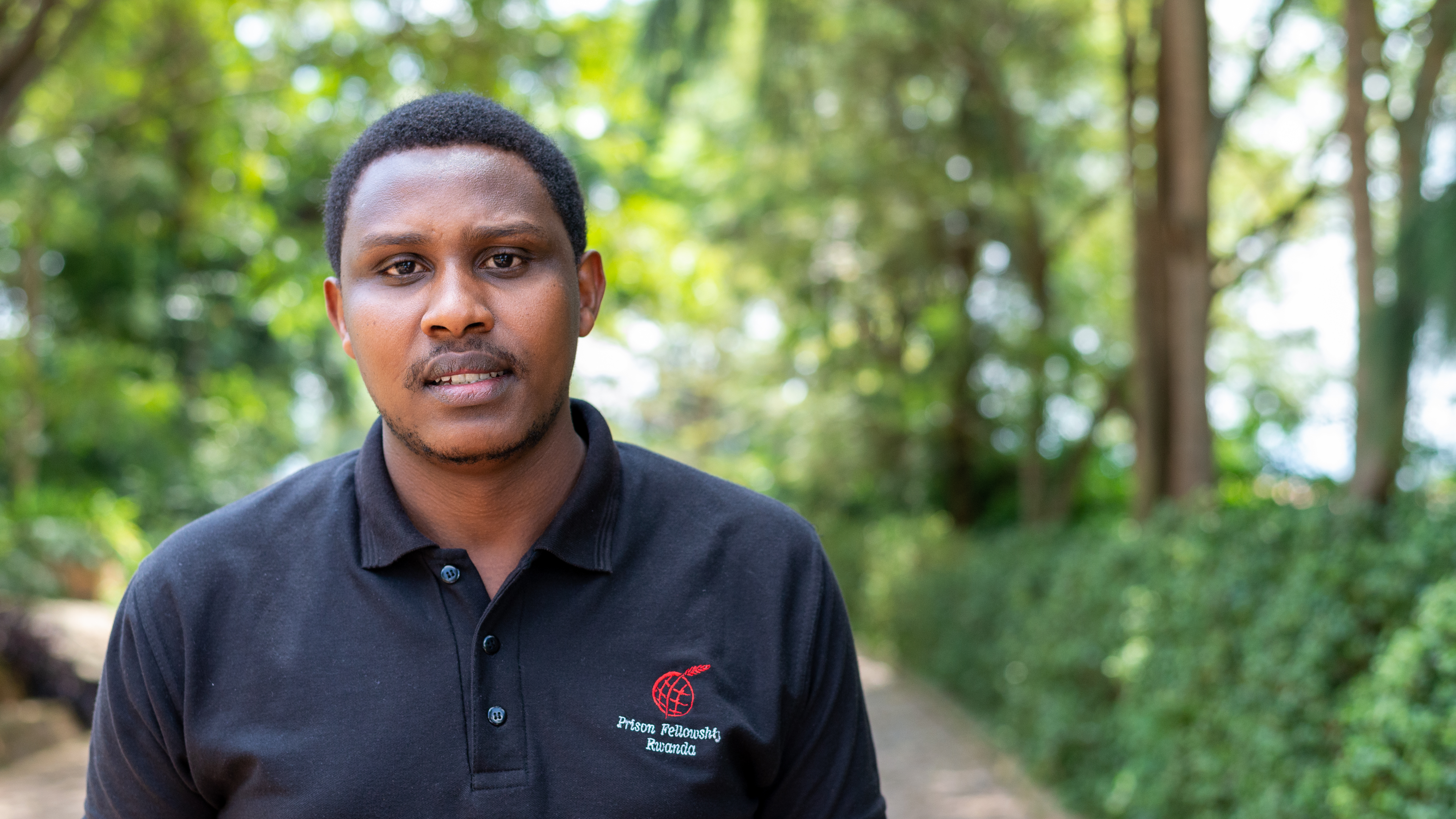
The Partner
“Providing refugees with a safe and secured environment is one of the most humane action I’ve ever done in my career.”
—Jean Paul Ntwari, Prison Fellowship Rwanda
Jean Paul is a humanitarian worker and the Deputy Executive Director of the Prison Fellowship Rwanda [PFR], a local NGO that supports the refugee response in both the camp and urban settings in Rwanda.
In this global pandemic, the PFR works closely with UNHCR, government institutions, and other health and humanitarian partners to protect refugees and ensure they receive enough prevention and response information on COVID-19 in a timely manner.
Jean Paul has been tracking how refugees comply with the current COVID-19 mitigation measures in the camps. He says refugees were compliant with all prevention measures to avoid the virus outbreak and calls for more action.
“I encourage everyone to play their role in fighting COVID-19 because in this situation everyone counts,” he said.
“ In the context of the global compact, and in line with international solidarity and responsibility sharing, Rwanda has invested in integrating refugees into services within national systems, such as the Community Health Insurance Scheme. Refugees are also able to participate in local economies in order to increase their level of self-reliance. The Government of Rwanda is working with other stakeholders to ensure refugees are protected against the pandemic, through appropriate preventive and recovery measures.”
–Hon. Kayisire Marie Solange, Minister in charge of Emergency Management
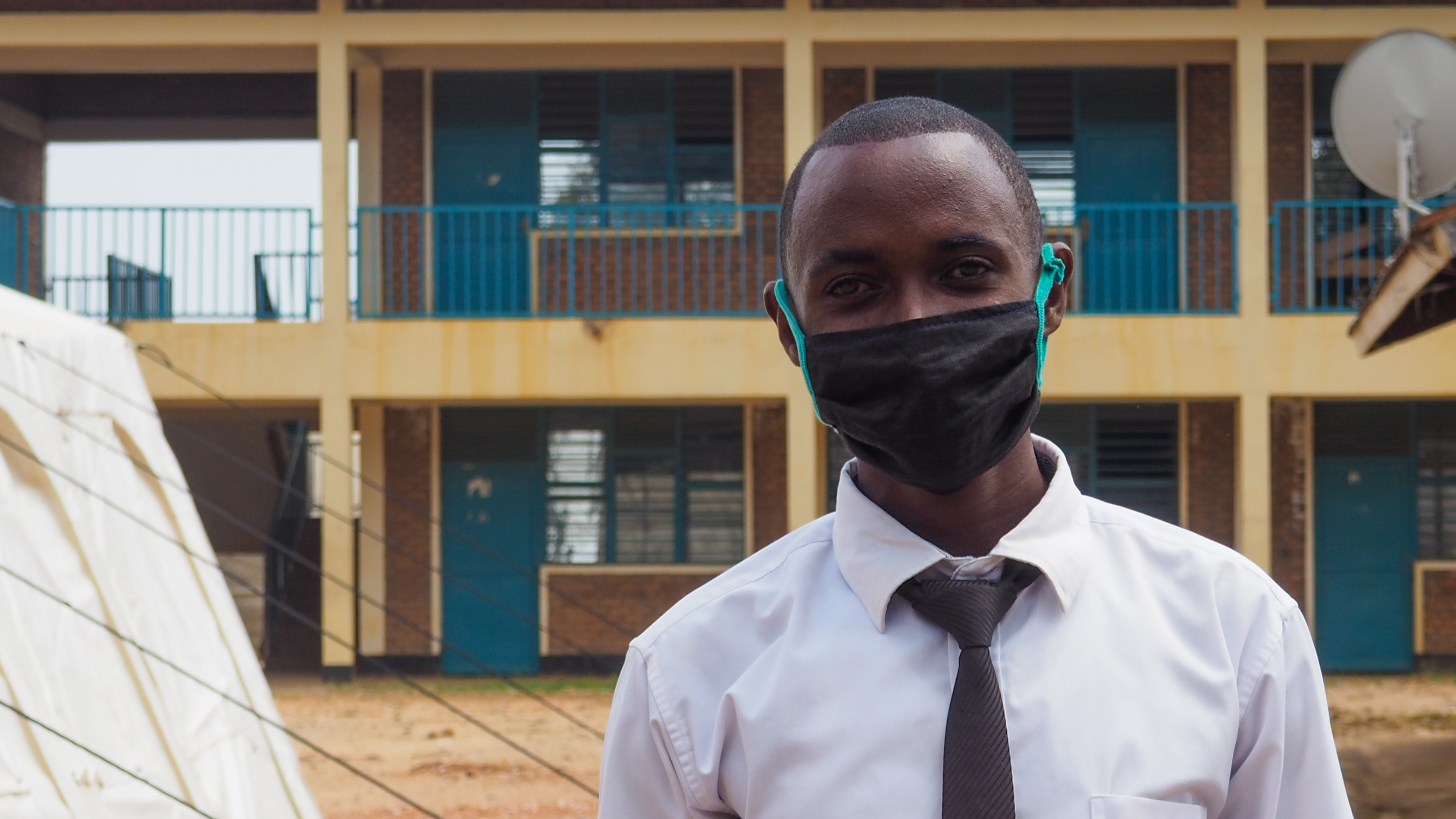
The Headmaster
“I helped refugee students pursue their lessons via radio & TV programs during COVID-19. I took also time to help my wife in the daily chores.”
—Francois, 27
Francois was just three when her family settled in a refugee camp in Kiziba. He’s married now, with one child. He became the Headmaster of the Amahoro school in this camp, and dedicate his life to help refugee children rising.
As children were unable to go to school during this time of lockdown, Francois worked very hard with Amahoro schoolteachers to ensure that students were the less affected. They drew up daily activity schedules for students and sensitized them to take courses provided through national radio and television stations.
“It was a strong reminder to students when I personally visited some of them to check them out in their families. This made students incredibly happy and more committed to study, “he said.
Francois also helps her wife do some household activities such as taking care of their child, fetching water and cooking at home. Those activities are deemed reserved for women in Kiziba camp.
“I don’t care if men or women are supposed to be doing some tasks. COVID-19 times have shown us we must support each other for the best. It is in that spirit we want to raise our son,” he said.
“Everyone can make a difference, and every action counts when it comes to promoting inclusion, respect, and dignity for all, including refugees, internally displaced and stateless people.”
–Ahmed Baba Fall, UNHCR Representative in Rwanda
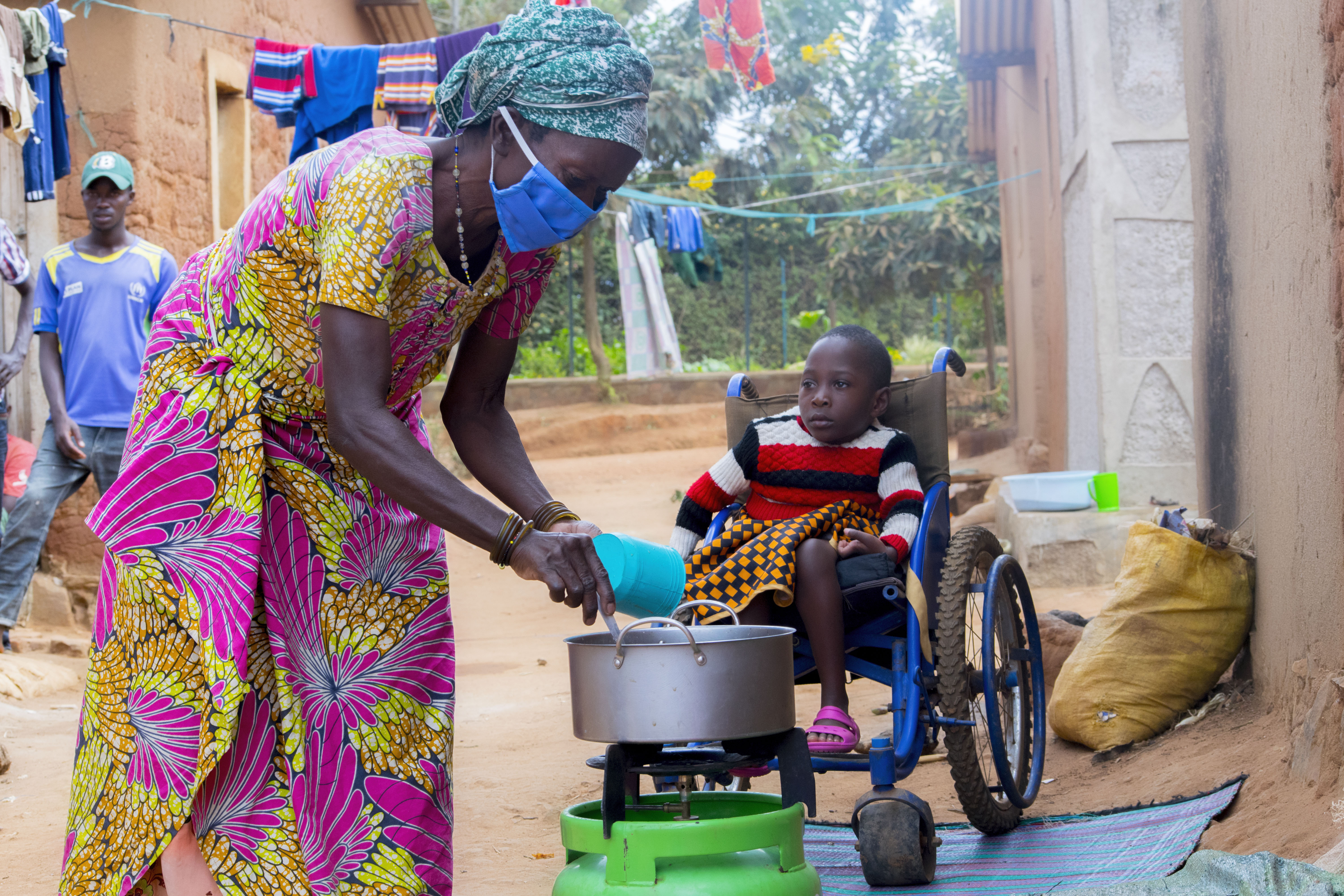
The Grandma
“I lost my job, but today my kids have no problem with hunger and malnutrition. I prepare porridge for them every morning.”
—Kapitolina, 59
NAHIMANA Kapitolina is one of the community mobilizers who help spread COVID19 prevention messages in the Mahama refugee camp in Rwanda. Her shelter now houses 7 people including her children, grandchildren and a 5-year-old girl she adopted since October 2019. The young girl has post-traumatic injury to the brain and receives rehabilitation services.
Like for other refugee mothers who had children needing a particular diet, it was not easy for Kapitolina to find appropriate food for her adopted child during the COVID-19 pandemic as a result of lockdown.
With thanks to Humanity & Inclusion, UNHCR partner, Kapitolina was supported with SOSOMA flour during the period of COVID-19 pandemic as supplementary feeding for her adopted child.
“The SOSOMA flour helps my children’s physical and cognitive growth,” she said.
These are challenging times. Yet, refugees are contributing on the frontlines of the pandemic, despite living in extremely vulnerable conditions.
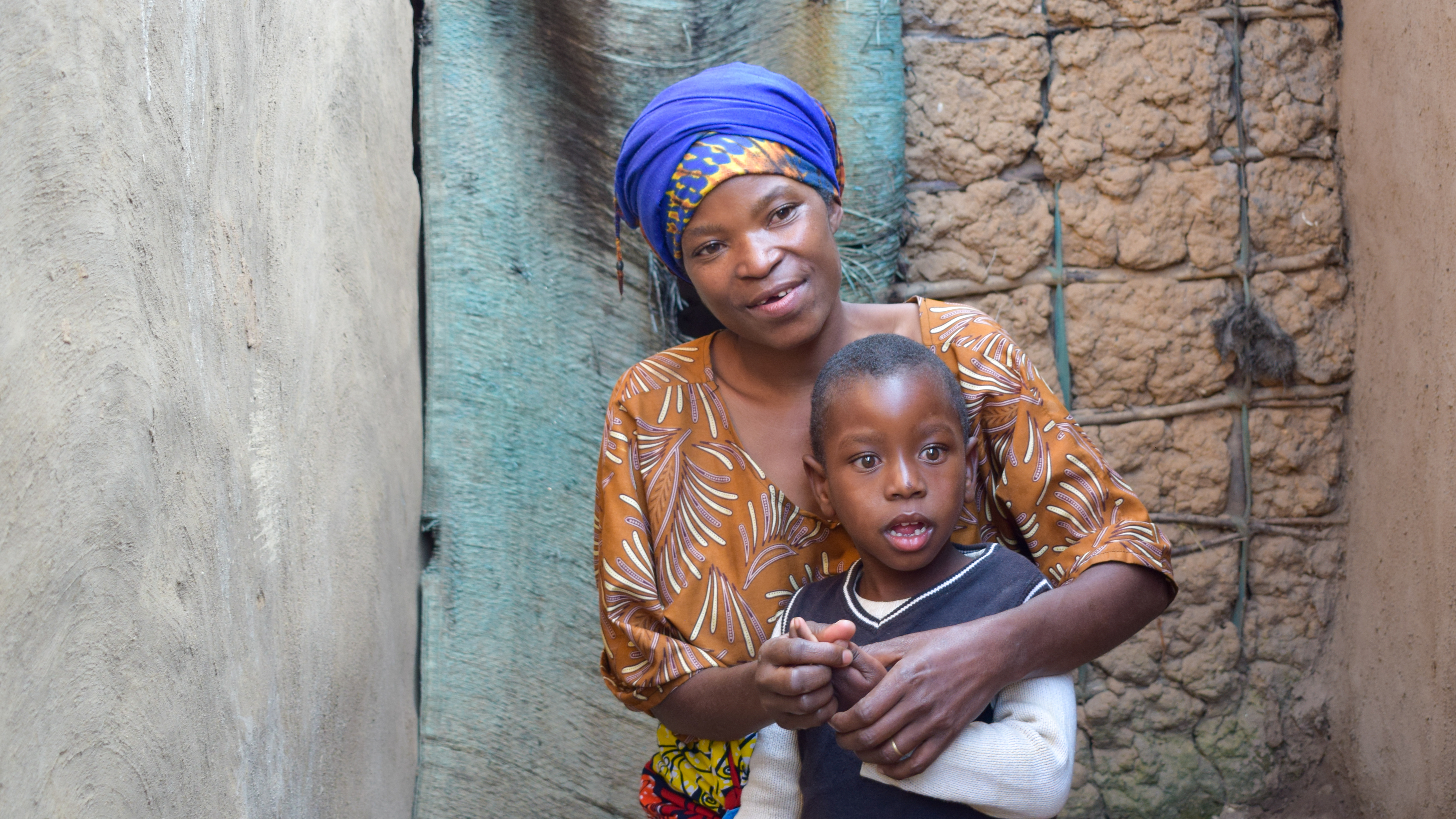
The Mother
“ The COVID-19 lockdown was a very difficult time, but it gave me a chance to look after my family. I helped my son do some physical therapy exercise at home with the support of Humanity Inclusion.”
—Sifa, 38
Sifa learned one of her children from the age of two had multiple disabilities and speech impairment. Since then, twice a week, community mobilisers have begun delivering their son community-based rehabilitation services at the rehabilitation centre run by Humanity Inclusion in Kigeme refugee camp, in Rwanda.
When the COVID-19 pandemic heated the world, health measures taken to mitigate the Coronavirus outbreak in the refugee camp ordered the closure of several facilities in the camps including the rehabilitation centre. Sifa had noticed a big improvement in her son’s life after three years of physical therapy, but the outbreak of the virus was another obstacle to her son’s healing.
“I was really worried that the condition of my son would worsen because of the suspension of recovery services at the centre,” she said.
However, thanks to the tireless commitment of the Rwandan authorities and humanitarian workers who continued, during the lockdown, to provide essential aid and basic services to refugees. Despite restriction measures the mobilization of community mobilizers allowed Sifa and her son to receive homes visits and coaching sessions on how to do physical therapy for the child. They also built wooden bars in front of her house so that her son could continue to practice how to sit, stand and walk in order not to deteriorate his condition.
“I just had to do one thing as a mother: never give up. During the trying situations of COVID-19, UNHCR, MINEMA and partners were there for us and we are grateful” she said.
No matter who you are or where you come from, pandemic or not; everyone of us can make a difference. Every action counts.
